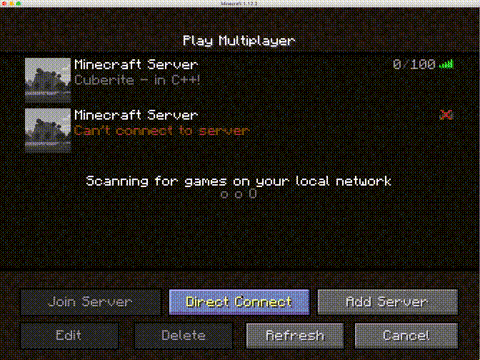Facebook is creating an AI assistant for Minecraft

Machine intelligence has outperformed humans in a range of tasks, from game playing to face recognition.
But the embarrassing truth is that AI systems still cannot cope with multiple tasks. The next big goal for AI researchers is to develop a system that is quite good at lots of tasks rather than superhuman at one.
Enter Arthur Szlam and colleagues at Facebook Research, who have started work on an AI assistant capable of interacting with humans and then performing a wide range of tasks on request. Crucially, their assistant can learn from its interactions and thereby increase the range of tasks it can perform.

The medium in which Szlam and colleagues have chosen to pursue this goal is Minecraft, a 3D sandbox video game that allows players to explore, build, craft, and even fight in a unique and limitless online world.
Minecraft is the best-selling video game of all time, having moved over 170 million copies. More than 90 million people play every month.
But what makes it useful for AI research is that while the Minecraft world offers infinite variety, its rules are also simple and predictable within certain limits. AI researchers have already begun to use it to train and test various kinds of AI systems.
Now Szlam and co are going a step further. “Instead of superhuman performance on a single difficult task, we are interested in competency across a large number of simpler tasks, specified (perhaps poorly) by humans,” they say.
And Minecraft is the perfect environment for an AI to learn from humans. “Since we work in a game environment, players may enjoy interacting with the assistants as they are developed, yielding a rich resource for human-in-the-loop research,” they say.
At first sight, the number of actions that are possible in Minecraft is huge. “The set of things a player could possibly do in the game is enormous; in the most naive sense, it is all possible ways of placing all the possible blocks into as big a world as fits in RAM,” say Szlam and co.
But the vast majority of block arrangements in Minecraft are highly unlikely. “We expect that the distribution of player requests of an assistant will be concentrated on a tiny fraction of what is actually possible in the game,” they say.
That makes the task for an AI that much simpler. The Facebook team thinks that even if their AI system fails at many tasks, it will still be useful. “We believe we can make progress towards a useful assistant without having to be able to succeed at every possible request,” they say.
But it is still challenging. Among the difficulties is understanding ordinary language. The Facebook team imagines the following request:
PLAYER: build a tower 15 blocks tall and then put a giant smiley on top ASSISTANT: ok
This relatively simple request requires a remarkable degree of knowledge. The assistant must understand the concept of a “tower” and how to build one, know that “15 blocks high” is a measure of the tower height, and know what “15” is. It also needs to understand the term “smiley” and how to build it and know what it means to place it “on top.” And it’s not hard to imagine how these requests could get significantly more complex.
But the opportunities for an AI to learn are huge. If Facebook can elicit enough human help, the assistant could ask humans to help it learn.
And Facebook is setting itself the task of designing the AI to self-improve. One of the most common criticisms of AI systems is that they do not learn new tasks beyond those for which they are trained and for which data is collected and prepared. But the researchers think the Minecraft environment is a perfect one to develop this kind of learning.
That’s interesting work that maps out an ambitious goal for Facebook. Of course, it is still early days. The team describes this work as a “call to arms.”
Nevertheless, an early version of the assistant is already available for ordinary users to start experimenting with. Anybody can download it here.
Ref: arxiv.org/abs/1907.09273 : Why Build an Assistant in Minecraft?
Keep Reading
Most Popular
Large language models can do jaw-dropping things. But nobody knows exactly why.
And that's a problem. Figuring it out is one of the biggest scientific puzzles of our time and a crucial step towards controlling more powerful future models.
How scientists traced a mysterious covid case back to six toilets
When wastewater surveillance turns into a hunt for a single infected individual, the ethics get tricky.
The problem with plug-in hybrids? Their drivers.
Plug-in hybrids are often sold as a transition to EVs, but new data from Europe shows we’re still underestimating the emissions they produce.
Stay connected
Get the latest updates from
MIT Technology Review
Discover special offers, top stories, upcoming events, and more.